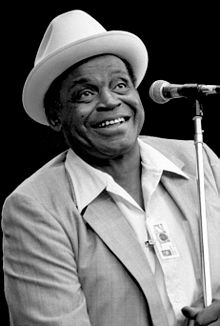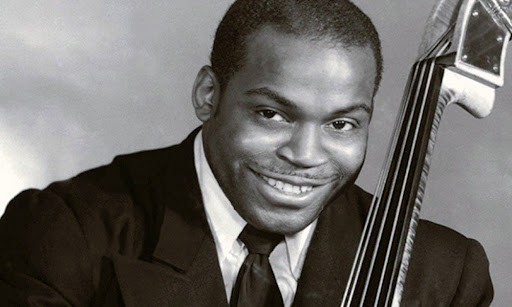Early Life
William James Dixon was born on July 1, 1915, in Vicksburg, Mississippi. The seventh of 14 children, Dixon grew up immersed in the rich musical traditions of the Mississippi Delta. His early exposure to gospel music in church and the work songs sung in the fields laid a solid foundation for his musical career. Dixon’s family struggled with poverty, and his early life was marked by hard labor and a determination to rise above his circumstances.
Journey to Chicago
In 1936, at the age of 21, Dixon left Mississippi for Chicago, drawn by the promise of better opportunities. In Chicago, he initially pursued a career in boxing, inspired by his athletic physique and competitive spirit. He even won the Illinois State Golden Gloves heavyweight championship in 1937. However, an argument with his manager led to the end of his boxing career, and Dixon turned his attention back to music.
Musical Beginnings
Dixon’s musical career began to take shape in the late 1930s and early 1940s. He formed a gospel quartet, The Union Jubilee Singers, and later joined The Five Breezes, a group that blended jazz and blues. His proficiency on the double bass quickly became evident, and he started playing with established blues musicians, such as Memphis Slim and Big Bill Broonzy.
Chess Records and Songwriting Success
Dixon’s big break came in 1951 when he joined Chess Records, initially as a bassist but soon becoming one of the label’s most prolific songwriters, arrangers, and producers. Chess Records was the epicenter of Chicago blues, and Dixon’s contributions were instrumental in shaping its sound. He wrote or co-wrote over 500 songs, many of which became blues standards.
Some of his most famous compositions include “Hoochie Coochie Man,” “I Just Want to Make Love to You,” “Little Red Rooster,” and “Spoonful.” These songs were performed by legendary blues artists like Muddy Waters, Howlin’ Wolf, and Little Walter, cementing Dixon’s reputation as a master songwriter. His lyrics often addressed themes of love, hardship, and social issues, resonating deeply with audiences.
Influence and Legacy
Dixon’s influence extended beyond the blues genre. His songs were covered by rock artists such as The Rolling Stones, Led Zeppelin, and The Doors, helping to bridge the gap between blues and rock ‘n’ roll. Led Zeppelin’s rendition of “You Shook Me” and The Rolling Stones’ version of “Little Red Rooster” are just two examples of how his work reached a wider audience.
In addition to his songwriting, Dixon was a powerful advocate for the rights of blues musicians. He recognized the exploitation that many artists faced and fought for fair royalties and proper recognition of their contributions. In the 1970s, he founded the Blues Heaven Foundation to preserve the blues heritage and support musicians in need.
Later Years and Recognition
In the 1980s and 1990s, Dixon continued to perform and record, though health issues slowed him down. He received numerous accolades for his contributions to music, including a Grammy Award in 1989 for his album “Hidden Charms.” In 1994, he was inducted into the Rock and Roll Hall of Fame as an early influence, a testament to his impact on multiple generations of musicians.
Willie Dixon passed away on January 29, 1992, in Burbank, California, but his legacy endures. His work not only shaped the sound of Chicago blues but also played a critical role in the development of rock music. His songs remain staples in the repertoires of blues and rock musicians alike, ensuring that his influence will be felt for years to come.
Conclusion
Willie Dixon’s journey from the fields of Mississippi to the bustling music scene of Chicago is a testament to his talent, perseverance, and dedication to his craft. As a songwriter, musician, and advocate, Dixon left an indelible mark on the world of music. His contributions helped to define the sound of the blues and inspired countless artists across genres, securing his place as one of the most important figures in American music history.


No responses yet